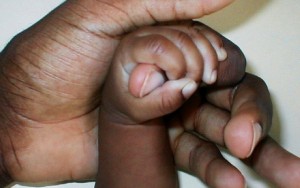Infection Control Is Everyone’s Responsibility
Up to 20% of infants under one month old develop sepsis, or systemic infection, and approximately 1% die of sepsis-related causes. However, this is largely preventable.
Research has shown for decades that the principal reservoirs of infection are the gastrointestinal tract of patients and the hands of hospital personnel.
Organisms can spread rapidly, often leading to hospital outbreaks. Besides handwashing, proper hospital cleaning protocols, and proper disposal of waste, it takes more than highly trained and specialized neonatal intensive care nurses to decrease infection rates. Please, do not come out of the box blaming the nurses or physicians first. Preterm-related deaths account for approximately 35% of all infant deaths in my country, more than any other single cause. We have the most expensive healthcare system in the world, and evidence has shown that it does not produce the better health outcomes. Bottom line: it does not cost more money to produce improved outcomes, no matter where one lives.
It takes a proper government to support the very basis of infrastructure in the delivery of health care. A hospital’s housekeeping department is just as important, if not more important, than the proper nursing staff. The housekeeping staff must have the proper tools, equipment, and cleaning solutions in order to reduce infection transmissions and eliminate germs. If they are not provided the proper tools, they cannot do their jobs.
Is there a supply of antimicrobial soaps readily available for staff at every sink? Is there an adequate supply of protective equipment? Are the instruments sterilized, are the delivery suites properly sanitized between patients? Yes, we nurses are very much aware and highly trained in hand washing techniques, and where I practice we have ‘secret shoppers’, or hospital staff members who have one job… to observe who is and who IS NOT washing hands before and after entering a patient’s room.

More importantly, the focus should be prevention, not blame. It is easy to blame one person, one department, one hospital, one Minister of Health; when in reality, it is the system that is broken down and many arms have dropped the ball and become complacent. Premature infants are the highest at-risk category for hospital acquired infections. So therefore, a structured government that has a responsibility to care for its’ citizens (because healthcare is a basic human right) should be PREVENTING premature infant births by providing free prenatal care, proper food and nutrition for the expectant moms, providing prenatal vitamins; providing classes for expectant parents to include cleanliness, proper hygiene for infants and their surroundings, and treating the complications of pregnancy such as high blood pressure and diabetes. By controlling gestational diabetes and pre-eclampsia (elevated blood pressure during pregnancy), and abstaining from alcohol and tobacco, the infant mortality rate can be reduced. How many people change their babies’ diapers and immediately go wash their hands? Or do they touch their faces, some furniture, or a drinking glass first? Disease prevention is so much cheaper and easier than disease treatment. New moms and dads are usually very receptive and eager to learn, and they genuinely want to do the best they can do for their babies. Were we taught anything in the hospital when we had our children? I had three children and barely even saw a nurse, let alone actually be taught something and asked to demonstrate it back.
Nurses, physicians, and all healthcare providers want nothing more than to see positive outcomes in the care and services they provide, no matter where we practice. Notwithstanding the great delay and the incredible lack of communication in this instance, we must remember it actually takes at times more than 48-72 hours to isolate and identify organisms and the proper medication to treat them, and that is under ideal conditions. Neonates cannot wait 48-72 hours, so a highly trained staff who are educated in prevention of sepsis itself, timely recognition and aggressive supportive care can greatly reduce, if not eliminate this situation becoming a reoccurrence.
In my country, the transmittal and subsequent deaths of patients who contracted Ebola became a blame game first, full of hype and hysteria, while very quickly behind the scenes, top medical professionals and researchers developed protocols for infection prevention and control. We are now much more confident and prepared should the virus appear again. The best research we can rely on is evidence-based practice, which are improved outcomes through changes in practice. Our profession is one of continual learning and research, and yes.. we do make mistakes. We don’t intend to, and when we do, it is something we never forget and quite honestly carry within us for the duration of our careers. This is an opportunity to own the problem and resolve to do better, while avoiding all the negativity, blaming, and name calling. That only prevents us from moving forward to better care.
However, the parents of these babies and the entire communities deserve answers, apologies, and solutions. A nation cannot grow, flourish, and be productive if they do not have access to food, water, medicine, shelter, and access to health care. Every human, no matter where they live, has a right to these things. If the population is made to continually suffer and be denied, the nation remains stagnant, uneducated, and will never move forward. Jamaica is too wonderful of an island, the true crowned jewel of the Caribbean, to wade in this negativity. Resolve to invest, educate, inform, and use the available tools to help improve everyone’s health across your great island. Healthy people are always happier people.

